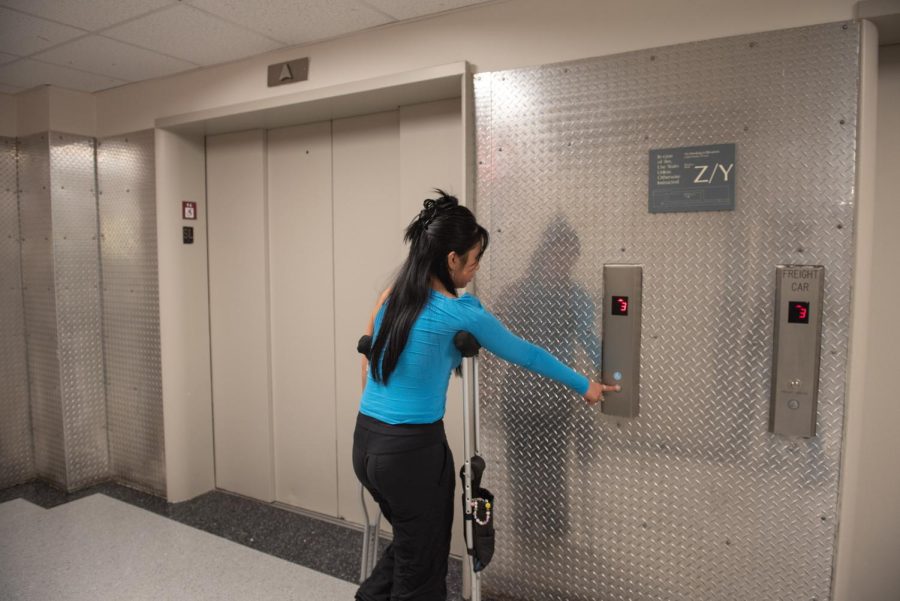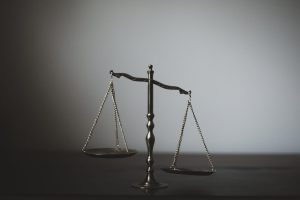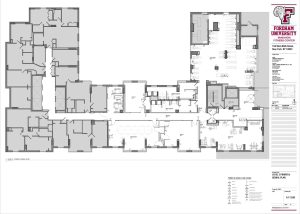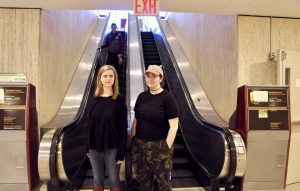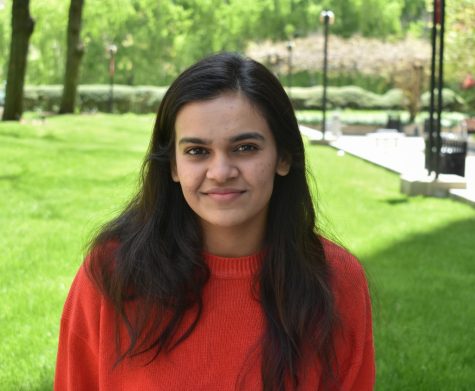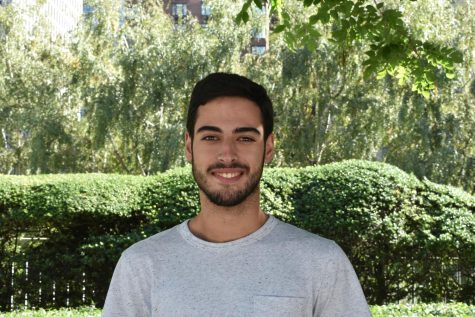Students Report Issues With Accessibility
Public Safety director said he is unaware of any problems faced by disabled students on campus
The disability accessible elevator located on the SL level is the only accessible elevator in Lowenstein.
April 7, 2022
After seeing the crowded elevators in the Leon Lowenstein Center in 2019, Cristina Pardo, Fordham College at Lincoln Center (FCLC) ’19 and second-year law student at Fordham, and Lucy Clancy, FCLC ’19, became concerned with how the elevators may cause difficulties for physically disabled students.
The university’s lack of accessibility for disabled students inspired Pardo and Clancy to form a club — Students for Disability Awareness (SDA) — with the mission of creating a community for students with disabilities and increasing accessibility on campus. Pardo ran the club as president for two years before it became inactive.
“I heard it was sort of subsumed by the Office of Disability Services, and it became an inactive group support meeting,” she said.
“I sometimes respond to these complaints by gently reminding people that some people have disabilities and so they can’t use the stairs.” Sarah Macy, FCLC ’22
Pardo added that many of the elevators in the law school are too small and crowded to be accessible. She has “found that law school is more strict about the standards of documentation necessary for accommodations.”
Sarah Macy, FCLC ’22 and a student with non-physical disabilities, who is minoring in disabilities studies, said she witnessed some barriers to physical accessibility on campus, which is made worse by the attitudes of some students and professors.
“People often complain when the Lowenstein elevators stop on the second and third floors. I sometimes respond to these complaints by gently reminding people that some people have disabilities and so they can’t use the stairs,” she said.
“I’ve seen people in wheelchairs wait for ages to get onto the elevator.” Sarah Macy
Similar to Pardo, Macy said she feels that Fordham is lacking when it comes to accommodating disabilities.
“I’ve seen people in wheelchairs wait for ages to get onto the elevator,” she said. “Technology is also key to accessibility, and I wonder if offering Zoom as an option could benefit students with disabilities.”
Robert Dineen, director of Public Safety, said that Lowenstein has an elevator designated for individuals with disabilities in case they are unable to access the others. Additionally, Dineen noted that all the Lincoln Center campus buildings are compliant with the Americans with Disabilities Act (ADA) in terms of disability access.
Macy noted that the street-level elevator designated for people with disabilities is only accessed by a key and is shared with the maintenance crew, making it crowded and inconvenient for individuals with disabilities. Moreover, the elevator outside the Lowenstein entrance on 60th and Columbus that provides access to the Plaza cannot be called from the street level.
The Office of Student Affairs recently held a staff training day on the topic of disability. Macy was initially asked to send in a recording, but said that no one followed up with her after she agreed to do so.
Sophie Mitra, a professor of economics and co-director of the disability studies minor, said she has seen improvements in regard to accessibility at Fordham.
“I have been here 15 years, and I can see that there have been improvements in terms of physical disabilities, but there is still work to do,” she said.
At Fordham Lincoln Center, McMahon Hall, Martino Hall and the Law School buildings are all ADA compliant, according to Dineen. The Leon Lowenstein Center and the 140 W. 62nd building have ramp access at their entrances. There are ADA-compliant lifts at the entrance to the 140 W. 62nd Building and in Pope Auditorium in Lowenstein, allowing people with disabilities to have access to these locations.
Students with disabilities who have permission to stay in the building after hours for club responsibilities are unable to leave it at night without requiring assistance.
The Argo Tea elevators in the 140 W. 62nd building are shut down by Public Safety at 11 p.m. each night, preventing access to the building’s Garden Level Lounge after the building’s closure, according to Dineen. Due to this, students with disabilities who have permission to stay in the building after hours for club responsibilities are unable to leave it at night without requiring assistance. Students without physical disabilities who stay in the building past 11 p.m. are able to exit through the stairwell.
Every night, Public Safety makes an announcement alerting occupants of the time left prior to the building’s closure. Upon closing, when the occupants depart, the building is locked and secured, and the elevators are turned off in order to restrict access to the building. This limits some disabled students from accessing the Garden Level Lounge and the rest of the 140 W. 62nd Building.
“This is done for security reasons as after the building’s hours of operation, students should not be accessing the Garden Level Lounge or using the elevators,” Dineen said. “After closing, the building is secured so it remains inaccessible to all students.”
Dineen added that he is not aware of any problems faced by disabled students at the Lincoln Center campus.
Fordham’s website provides a list of all places that are wheelchair accessible. Mary Byrnes, director of the Office of Disability Services for all campuses, said there have been very few issues with accessibility.
“If our office is notified of a problem, we contact facilities to correct that problem immediately, and their response is always immediate,” Byrnes said.
“Fordham does everything it can to give equal access to all.” Mary Byrnes, director of the Office of Disability Services
“The majority of classes for students with mobility issues are scheduled in Keating Hall,” she added. “We arrange for students with mobility issues or visual issues to have all back to back classes in the same building and when possible on the same floor to help ease the burden of rushing to another building with only 15 minutes between classes.”
Byrnes noted that wheelchair-accessible desks are provided in each room.
Additionally, wheelchair-accessible seating is available at the football field and at graduation, according to Byrnes. All students with a disability who live on campus live in ADA-accessible dorm rooms and touchless door openers are present throughout the campuses at both Rose Hill and Lincoln Center. She also added that there are handicap-accessible parking spaces.
“Fordham does everything it can to give equal access to all,” Byrnes said.

